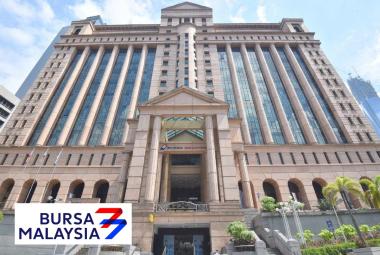KUALA LUMPUR Oct 17 - As Malaysia approaches the tabling of Budget 2025 on October 18, the significance extends beyond a mere fiscal announcement.
This budget serves as the final piece under the 12th Malaysia Plan (12MP) and sets the stage for the upcoming 13th Malaysia Plan (2026-2030). It is anticipated to prioritise fiscal responsibility, structural reforms, and sustainable growth while addressing cost of living challenges.
In an interview with DagangNews.com, Professor Geoffrey Williams, Founder and Director of Williams Business Consultancy Sdn Bhd, shared his insights on Budget 2025’s potential direction, reflecting on the achievements of Budget 2024 and outlining expectations for the coming year.

Building on the Success of Budget 2024
Professor Williams described Budget 2024 as one of Malaysia's most effective in decades, thanks to a shift in approach rather than a mere list of programs.
He said notable achievements included a modest increase in spending, higher revenues through minor tax changes, and a reduction in debt and deficit.
“The government’s strong stance on fiscal responsibility—emphasizing the elimination of wastage, leakages, and corruption—marked a departure from the unstable policies of previous administrations.”
Additionally, he said the budget laid the groundwork for long-term economic stability, fostering credibility in international markets and attracting foreign direct investment (FDI).
Initiatives such as subsidy rationalization, which began with utility and diesel reforms, and income-boosting measures, including civil service pensions and targeted assistance programs, set a promising foundation for future reforms.
Expectations for Budget 2025
Professor Williams foresees Budget 2025 building on this momentum, focusing on raising incomes, addressing the cost of living, and continuing subsidy rationalization, though reforms to RON95 petrol subsidies may be delayed.
“We expect to see a modest increase in spending, higher revenues from strong economic growth and more money from cutting wastage, leakages and corruption and subsidy rationalisation although RON95 reforms may be delayed.
Significantly, there are no plans to reintroduce the Goods and Services Tax (GST), and the much-anticipated high-value goods tax may be deferred once again. However, the global minimum tax is set to be introduced, targeting large multinational corporations.

Potential Tax Reforms: Introducing an E-Payments Tax?
A key suggestion from Professor Williams involves the introduction of an electronic payments tax (EPT), a tiny levy on all digital transactions.
He pointed a 0.25% EPT could replace various existing ad hoc taxes, such as the low-value goods tax, the Sales and Services Tax (SST) hike, and other levies like the digital goods tax, tourist tax, and capital gains tax. Additionally, a 0.25% EPT could exempt those earning below the T20 income threshold from income tax, or a 1.5% rate could potentially eliminate SST altogether.
These measures aim to simplify the tax landscape while ensuring revenue neutrality and providing relief to the broader population.
Priorities for Structural Reforms and Market Liberalization
Looking ahead, Professor Williams advocates for swift completion of the 12MP, enabling the government to pivot toward the 13th Malaysia Plan, which should emphasize broad structural reforms and market liberalization. He envisions creating a competitive, agile, and innovative economic environment without excessive commitments. Rather than being overly prescriptive, he suggests that sustainability, green growth, and technological investment should be market-driven to ensure cost-effectiveness and efficiency.
Addressing Income, Cost of Living, and Social Welfare
For Budget 2025, Professor Williams hopes to see a stronger focus on pensions for ordinary Malaysians, reform of the National Higher Education Fund Corporation (PTPTN), and support for small and medium-sized enterprises (SMEs).
This could involve cutting taxes and reducing regulatory burdens to foster business growth. Furthermore, ensuring fiscal discipline with only a slight increase in spending—offset by higher revenues and additional cuts in wastage—could further reduce the need for debt accumulation.
Ultimately, Budget 2025 is expected to reflect Malaysia’s commitment to fiscal sustainability, creating a solid foundation for the structural changes and economic agility envisioned in the 13th Malaysia Plan.
As the nation moves forward, careful balancing of growth, equity, and fiscal prudence will be essential to meeting the challenges of the evolving economic landscape. - DagangNews.com










